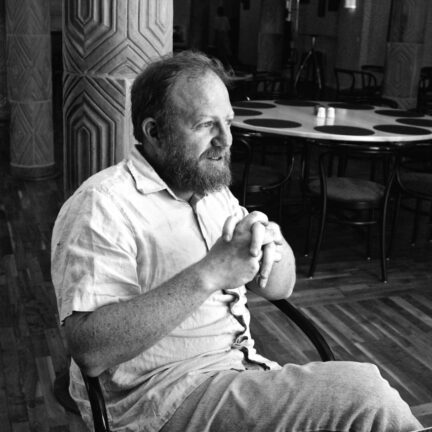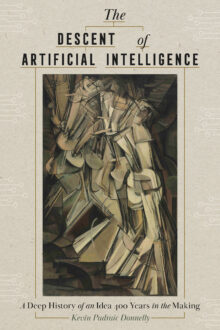
Kevin Padraic Donnelly
Kevin Padraic Donnelly is an associate professor of history at Alvernia University. His scholarship has appeared in the British Journal for the History of Science, History of Science, PUBLIC Journal, and History of Meteorology, and he has published several chapters in edited volumes on the role of statistics and science in shaping social thought. His previous book is a well-acclaimed history of the pioneering nineteenth-century statistician Adolphe Quetelet.
The Descent of Artificial Intelligence
A Deep History of an Idea Four Hundred Years in the Making
A 2025 Choice Outstanding Academic Title
The idea that a new technology could challenge human intelligence is as old as the warning from Socrates and Plato that written language eroded memory. With the emergence of generative artificial intelligence programs, we find ourselves once again debating how a new technology might influence human thought and behavior. Researchers, software developers, and “visionary” tech writers even imagine an AI that will equal or surpass human intelligence, adding to a sense of technological determinism where humanity is inexorably shaped by powerful new machines. But among the hundreds of essays, books, and movies that approach the question of AI, few have asked how exactly scientists and philosophers have codified human thought and behavior. Rather than focusing on technical contributions in machine building, The Descent of Artificial Intelligence explores a more diverse cast of thinkers who helped to imagine the very kind of human being that might be challenged by a machine. Kevin Padraic Donnelly argues that what we often think of as the “goal” of AI has in fact been shaped by forgotten and discredited theories about people and human nature as much as it has been by scientific discoveries, mathematical advances, and novel technologies. By looking at the development of artificial intelligence through the lens of social thought, Donnelly deflates the image of artificial intelligence as a technological monolith and reminds readers that we can control the narratives about ourselves.
Adolphe Quetelet, Social Physics and the Average Men of Science, 1796-1874
Adolphe Quetelet was an influential astronomer and statistician whose controversial work inspired heated debate in European and American intellectual circles. In creating a science designed to explain the “average man,” he helped contribute to the idea of normal, most enduringly in his creation of the Quetelet Index, which came to be known as the Body Mass Index. Kevin Donnelly presents the first scholarly biography of Quetelet, exploring his contribution to quantitative reasoning, his place in nineteenth-century intellectual history, and his profound influence on the modern idea of average.


